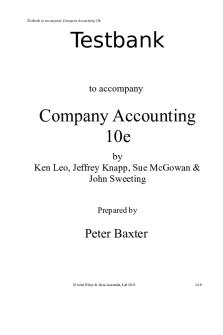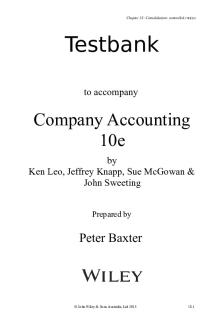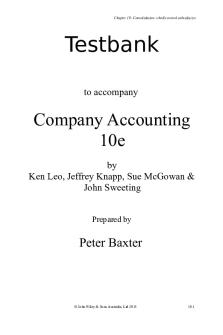3-4a leo non, tristique diam. Suspendisse potenti PDF

| Title | 3-4a leo non, tristique diam. Suspendisse potenti |
|---|---|
| Author | Carlos Andres Arias |
| Course | Proceso Administrativo |
| Institution | Universidad de Bogotá Jorge Tadeo Lozano |
| Pages | 2 |
| File Size | 107.2 KB |
| File Type | |
| Total Downloads | 75 |
| Total Views | 141 |
Summary
leo non, tristique diam. Suspendisse potentileo non, tristique diam. Suspendisse potentileo non, tristique diam. Suspendisse potenti...
Description
3/9/2021
Can’t tax sugary drinks to ‘fix diabetes,’ says pair of Manitoba profs | The Star
Subscribe Now As low as $1.49/week
Sign In
Today’s Podcasts
Newsletters
paper
This copy is for your personal non-commercial use only. To order presentation-ready copies of Toronto Star content for distribution to colleagues, clients or customers, or inquire about permissions/licensing, please go to: www.TorontoStarReprints.com
CANADA
Can’t tax sugary drinks to ‘fix diabetes,’ says pair of Manitoba profs By Nicole Wong, Local Journalism Initiative Reporter Winnipeg Sun Wed., Feb. 24, 2021
3 min. read
Two Manitoba scholars are speaking against the potential sin tax on sugary drinks as it ignores the needs and rights of First Nation communities. Myra J. Tait and Natalie Diane Riediger believe imposing such a tax on First Nation consumers is unethical, contravenes tax law and undermines Indigenous rights to self-determination. “If it was as simple as taxing a beverage and we can fix diabetes, every jurisdiction would do that. The problem is, especially for Indigenous people, there is poverty and issues of sovereignty,” said Tait the assistant professor of Governance, Law and Management at the Athabasca University, on Wednesday. Calls for the soda tax are supported by the World Health Organization that trust the tax implementation can help reduce consumption and prevent diabetes. The idea has also caught the attention of a few Ontario Liberal MPs that once stated in their platform priorities that the new tax could be used to create a national healthy lunch program for Canadian schools. According to a report by The Manitoba Centre for Health Policy, the life expectancy gap between First Nations and non-Indigenous Manitobans has widened to 11 years from eight years since 2002. Treating diabetes in Canada can cost upward of $30 billion per year, and it seems improbable that a soda tax can solve this issue. Tait noted the taxation would seemingly help everyone else other than the Indigenous populations. Therefore, First Nations need to have the right to determine what is best for their communities including whether they should purchase sugary drinks at a higher price. Existing research has proven that there is a link between childhood experiences and the higher intake of sugar-sweetened beverages in childhood and adulthood. Due to intergenerational trauma, many Indigenous people live with mental illnesses and addictions. Taxation also does not address underlying food security in many Indigenous communities. The 2015 Canadian Community Heath survey proved that Indigenous populations have a higher intake of sugar-sweetened beverages than any other groups. This result reflects the lack of healthy and affordable food in communities with a large Indigenous population. “We know that in Canada, Indigenous people experience a much higher prevalence of food security,” said Riediger, Assistant Professor of Nutritional Epidemiology at the University of Manitoba. “Because of the pandemic, food security in Canada has increased. It has been proven that communities facing food insecurity are more likely to consume sugary beverages. Proposing to raise the price of the drinks that are disproportionally consumed by people who can’t afford to eat is unethical.” https://www.thestar.com/news/canada/2021/02/24/cant-tax-sugary-drinks-to-fix-diabetes-says-pair-of-manitoba-profs.html
1/2
3/9/2021
Can’t tax sugary drinks to ‘fix diabetes,’ says pair of Manitoba profs | The Star
The calls for the tax on sugary drinks raises ethical questions about taxing addiction or behaviours associated with trauma and especially since choices are limited in many Indigenous communities. The soda tax is supposed to enable citizens to make better food choices. However, communities like the Tataskweyak Cree Nation does not even have safe drinking water to consume. “Nobody is disputing that too much sugar is bad for us but the approach of taxing First Nations people in particular, to help with a health problem when the most basic need of clean water is not met, it is not right,” said Tait. Rather than taxing sugar-sweetened beverages, both believe a better solution is to end paternalism and provide real choices by confronting inequality and racism. — Nicole Wong is a Local Journalism Initiative reporter who works out of the Winnipeg Sun. The Local Journalism Initiative is funded by the Government of Canada.
Read more about: Manitoba
More from The Star & Partners Copyright owned or licensed by Toronto Star Newspapers Limited. All rights reserved. Republication or distribution of this content is expressly prohibited without the prior written consent of Toronto Star Newspapers Limited and/or its licensors. To order copies of Toronto Star articles, please go to: www.TorontoStarReprints.com
https://www.thestar.com/news/canada/2021/02/24/cant-tax-sugary-drinks-to-fix-diabetes-says-pair-of-manitoba-profs.html
2/2...
Similar Free PDFs

34a-Procesos Sedimentarios
- 21 Pages

Historia Clínca 1 - LEO
- 134 Pages

LEO Lionni - Biografia
- 2 Pages

ch21 sm leo 10e
- 107 Pages

Ch24 tb leo 10e - Ch24 tb leo 10e
- 15 Pages

Ch18 tb leo 10e - Ch18 tb leo 10e
- 16 Pages

Ch19 tb leo 10e - Ch19 tb leo 10e
- 17 Pages

SOAL CAT LEO
- 9 Pages

Detran RS - LEO - dfddfewfewf
- 1 Pages

Anatomia Humana Leo Coscarelli
- 1 Pages

Annie IS Worried About LEO
- 1 Pages

Báo cáo Robot leo cầu thang
- 95 Pages
Popular Institutions
- Tinajero National High School - Annex
- Politeknik Caltex Riau
- Yokohama City University
- SGT University
- University of Al-Qadisiyah
- Divine Word College of Vigan
- Techniek College Rotterdam
- Universidade de Santiago
- Universiti Teknologi MARA Cawangan Johor Kampus Pasir Gudang
- Poltekkes Kemenkes Yogyakarta
- Baguio City National High School
- Colegio san marcos
- preparatoria uno
- Centro de Bachillerato Tecnológico Industrial y de Servicios No. 107
- Dalian Maritime University
- Quang Trung Secondary School
- Colegio Tecnológico en Informática
- Corporación Regional de Educación Superior
- Grupo CEDVA
- Dar Al Uloom University
- Centro de Estudios Preuniversitarios de la Universidad Nacional de Ingeniería
- 上智大学
- Aakash International School, Nuna Majara
- San Felipe Neri Catholic School
- Kang Chiao International School - New Taipei City
- Misamis Occidental National High School
- Institución Educativa Escuela Normal Juan Ladrilleros
- Kolehiyo ng Pantukan
- Batanes State College
- Instituto Continental
- Sekolah Menengah Kejuruan Kesehatan Kaltara (Tarakan)
- Colegio de La Inmaculada Concepcion - Cebu



